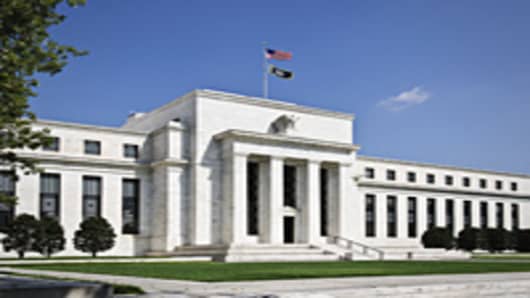Number one, the NY Fed Dudley speechhas already generated 35 bp of an anticipated 50-75 bp for the actual program itself. It will be difficult to get another 35 or so bps with the program especially if the bond market smells inflation.
Number two, the last QE program had a 3 month delay between public discussion (Bernanke speech December 2008) and initiation (March 2009 FOMC). The Fed needs to be cautious with this new QE program as it already has Fed dissenters publicly saying it's not needed.
The question Bernanke has to ask himself is whether the program would be worth a vote that has 2 or 3 nays and calls into question his ability to manage the board. Bullard's comments today stating that "It is an important question whether the Fed wants to be buying equivalent of all new Treasury issuance" exemplifies the divisions. We now have the equivalent of a very public Fed Food Fight with even Fed staff members weighing-in on what the best policy should be. This will create more market uncertainty and create more potential market dislocations.
Therefore, I believe it’s highly likely the market will be disappointed should it continue to expect either a big move (lower bond yields) on an announcement of QE2 or an actual announcement of QE2 on 11/3.
Either way, it’s a lose-lose.
Andrew B. BuschDirector, Global Currency and Public Policy Strategist at BMO Capital Markets, a recognized expert on the world financial markets and how these markets are impacted by political events, and a frequent CNBC contributor. You can comment on his piece and reach him hereand you can follow him on Twitter at http://twitter.com/abusch.



